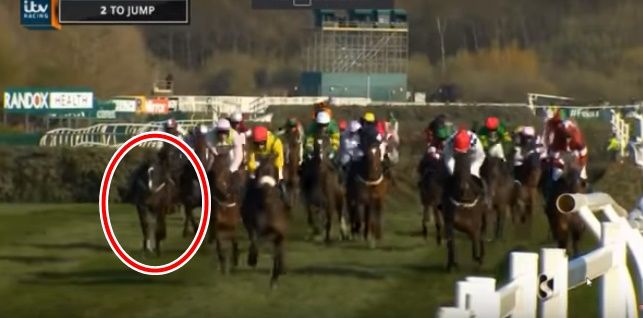

Share
8th April 2019
06:01pm BST

 Just like the 39 horses that lined up alongside him for the start of the world's most iconic steeplechase, Pleasant Company wanted to be doing this all along. Willie Mullins' gem was born to run and just like a cross-country or a marathon runnner, there's no real reason for it apart from their natural instincts.
https://twitter.com/gerlyonsracing/status/1115187208955277313
These are racehorses after all.
As is often the case after the Aintree Grand National, however, the emotion and the good-will that it causes within millions is conveniently met with outrage from a select few.
https://twitter.com/rickygervais/status/1114493329264107520
Those concern-one-day-a-year merchants. Where were they, you might ask, for the other 364 when Joseph O'Brien, his yard lads and grooms, for example, were tending to their 'pets' every needs.
Just like the 39 horses that lined up alongside him for the start of the world's most iconic steeplechase, Pleasant Company wanted to be doing this all along. Willie Mullins' gem was born to run and just like a cross-country or a marathon runnner, there's no real reason for it apart from their natural instincts.
https://twitter.com/gerlyonsracing/status/1115187208955277313
These are racehorses after all.
As is often the case after the Aintree Grand National, however, the emotion and the good-will that it causes within millions is conveniently met with outrage from a select few.
https://twitter.com/rickygervais/status/1114493329264107520
Those concern-one-day-a-year merchants. Where were they, you might ask, for the other 364 when Joseph O'Brien, his yard lads and grooms, for example, were tending to their 'pets' every needs.
"It’s the sensationalism that tends to catch people out. The percentages of horses being killed is very very low," says O'Brien to SportsJOE.Indeed they are. According to the British Horse Racing Authority, the fatality rate has been less than 0.35% since 1995. 0.19% was the ever decreasing rate in 2017 and when you consider that there are up to 15'000 horses in training and that these horses are running several times a year, that's certainly not as total as many would have you believe.
"Racehorses get looked after like royalty from the day they are born. From a foal to a yearling and all the way up, it’s like a five star hotel they’re living in. "There’s equine spas, massages, they get rub downs, they’re out on the paddock in the day, grazing, free to gallop to their hearts’ content and then at night they have a bed and a stable that you’d quite happily sleep in yourself," he continues.After losing Sir Erec, his stable star and eye's apple, O'Brien is well worn to the pain caused by such tragedies, but the Kilkenny based trainer is adamant that an active racing life is the only way for these beasts.
"We can’t hide from the fact that there’s no horse or human that gets out of here alive but I can guarantee you, these racehorses are enjoying every second of their lives that they have in training. I mean, I have a few horses and if you didn’t work them for a while, you can see them going out of their heads, they get so bored and then they’d be set to race around buck mad and injure themselves in the field..." "It’s the nature of the beast, they’re bred to race, bred to be worked, they love it and they love being able to do it."https://twitter.com/gerlyonsracing/status/1114958093237010434 Who are we to preach about animal cruelty to the men and women who care for them 24/7?
"I’ve over 100 staff working here and these lads live and breathe our horses. They treat our horses like pets and you’d see it in them, any time our horses get injured, it’s them who feel it the worst, that’s how much they look out for them and how much they love them. "Then, when our horses do retire, some of them go off playing polo, some of them are re-trained as eventers and they love that too."It's a racehorse's life.
Explore more on these topics:

Horse Racing | SportsJOE
horse racing